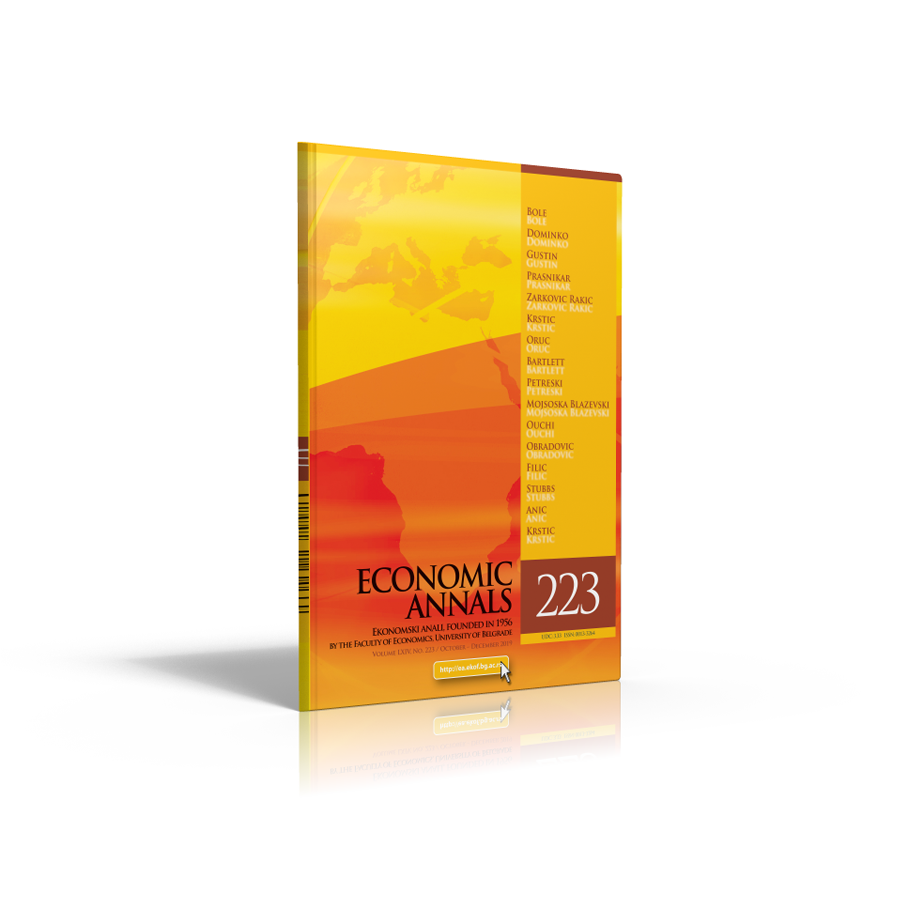THE MINIMUM WAGE AS A WAGE EQUALITY POLICY: EVIDENCE FROM NORTH MACEDONIA
##plugins.themes.bootstrap3.article.main##
##plugins.themes.bootstrap3.article.sidebar##
Marjan Petreski
Nikica Mojsoska Blazevski
Mariko Ouchi
Nikica Mojsoska Blazevski
Mariko Ouchi
Abstract
The paper aims to investi-gate if the minimum wage increase of Sep-tember 2017 resulted in better wage equal-ity in North Macedonia. The increase of 19% was sizable and included levelling up in the three sectors with a lower minimum wage: textiles, apparel, and leather. We ex-tend the ‘cell’ approach of Card (1992a) and rely on data from the Labour Force Survey 2017 and 2018. The results suggest that the 2017 increase in the minimum wage had a positive, significant, and robust effect on wages. However, the wage increases were almost entirely positioned on the left side of the wage distribution and implied wage compression up to or around the minimum wage. The bunching around the new mini-mum wage level ‘equalised’ workers: those who previously earned the new minimum wage level equalised with the less produc-tive workers who approximated their wage only by the power of the law. Hence, wage equality improved. The results confirm that the minimum wage can be an important wage equality policy, with considerably limited upward spillover effects in the cur-rent policy and institutional setup.
##plugins.themes.bootstrap3.article.details##
Keywords
minimum wage, spillover effects, North Macedonia
JEL Classification
J31, E24
Issue
Section
Articles
How to Cite
Petreski, M., Mojsoska Blazevski, N., & Ouchi, M. (2019). THE MINIMUM WAGE AS A WAGE EQUALITY POLICY: EVIDENCE FROM NORTH MACEDONIA. Economic Annals, 64(223), 61-82. https://doi.org/10.2298/EKA1923061P
How to Cite
Petreski, M., Mojsoska Blazevski, N., & Ouchi, M. (2019). THE MINIMUM WAGE AS A WAGE EQUALITY POLICY: EVIDENCE FROM NORTH MACEDONIA. Economic Annals, 64(223), 61-82. https://doi.org/10.2298/EKA1923061P

